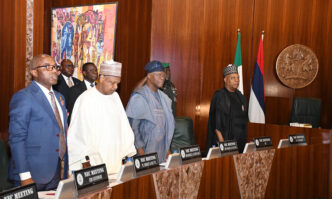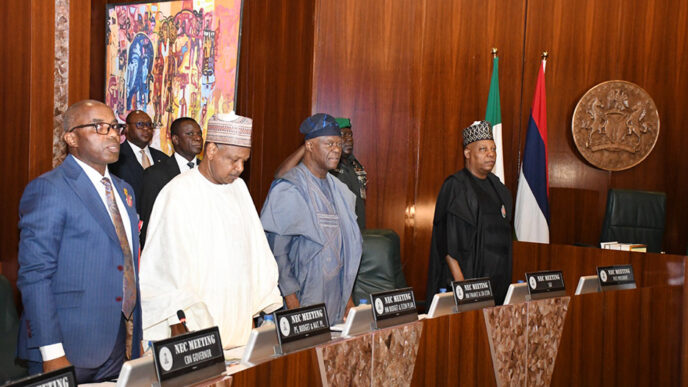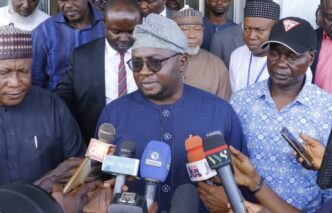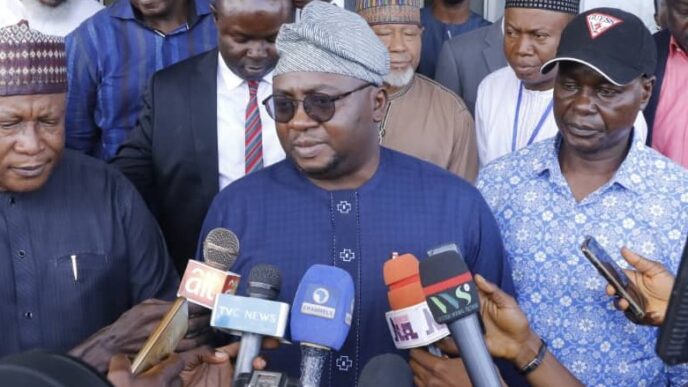Ogbonnaya Orji, executive secretary of NEITI
The Nigeria Extractive Industries Transparency Initiative (NEITI) says the solid minerals sector recorded N1.37 trillion between 2007 and 2023.
The NEITI, on Wednesday, presented the progress report on its extractive industries transparency initiatives (EITI) implementation on the mining sector in Nigeria in Abuja.
According to the report, in 2022, the sector generated N345.41 billion, with a reconciled final revenue of N329.92 billion.
The organisation said there were discrepancies of N301.6 billion in 2022, which were reduced to N100 million after its intervention.
Advertisement
In terms of gross domestic product (GDP), the report said the solid minerals sector contributed 0.83 percent in 2022 and 0.75 percent in 2023, underscoring its untapped potential.
Providing company payments analysis, the NEITI said the total government revenue, including reconciled and unilaterally disclosed figures, reached N401.87 billion in 2023.
“Key revenue streams included VAT (N128.32 billion), FIRS taxes (N370.09 billion), education tax (38.64%), company income tax (10.64%), and royalties (N9.06 billion),” he said.
Advertisement
The report also showed that the country produced 95.07 million tonnes of minerals in 2023, with a significant export volume of 4.32 million metric tonnes, valued at N117.29 billion.
According to the report, while Ogun, Kogi, and Rivers were the top three mineral-producing states, Osun, Ogun, and Kogi led in terms of revenue contributions.
“Top contributors in royalty revenues by states included Osun (N1.59 billion), Ogun (N1.19 billion), Kogi (N836.52 million), Edo (N750.46 million), and Ebonyi (N734.28 million),” NEITI said.
“States with the lowest royalty revenues included Akwa Ibom (N16.39 million), Anambra (N9.17 million), Yobe (N5.45 million), Borno (N2.78 million), and Imo (N2.12 million).
Advertisement
“The report also identifies liabilities totalling N680.63 million from annual service fees due by 1,619 companies within the fiscal period.”
‘SOLID MINERALS SECTOR SAW SIGNIFICANT GROWTH BUT MORE CAN BE DONE’
Speaking on the report, Ogbonnaya Orji, executive secretary of NEITI, said the solid minerals sector experienced significant growth but more needs to be done.
He reiterated the policy measures and reforms needed to unlock the sector’s capacity to significantly contribute to Nigeria’s economic diversification.
Advertisement
“NEITI’s 2023 Solid Minerals Report marks a significant milestone as the 16th cycle of audits, providing a comprehensive overview of the sector’s contributions from 2007 to 2023,” Orji said.
“During this period, the sector generated a cumulative total of 1.137 trillion (approximately $3.86 billion) in direct payments to various levels of government, reflecting steady growth in contributions and reporting.
Advertisement
“Government receipts from the solid minerals sector grew significantly from N7.59 billion in 2007 to N341.27 billion in 2022, representing a 44-fold increase.
“While the solid minerals sector’s revenue growth is impressive, greater emphasis on royalty payments and sector-specific fees could improve collection alignment with actual sector activities.
Advertisement
“Additionally, the high concentration of revenue from FIRS indicates room for enhancing sector-focused revenue sources to lessen dependence on generic taxation.”
Speaking at the event, Dele Alake, minister of solid minerals development, said the ministry will prioritise the report’s data to empower non-state actors and facilitate evidence-based engagement for government and company accountability.
Advertisement
Represented by Fatima Shinkafi, director-general of the solid minerals development fund, Alake said the report would support data-driven decisions that positively impact the economy and attract investments.
Add a comment









